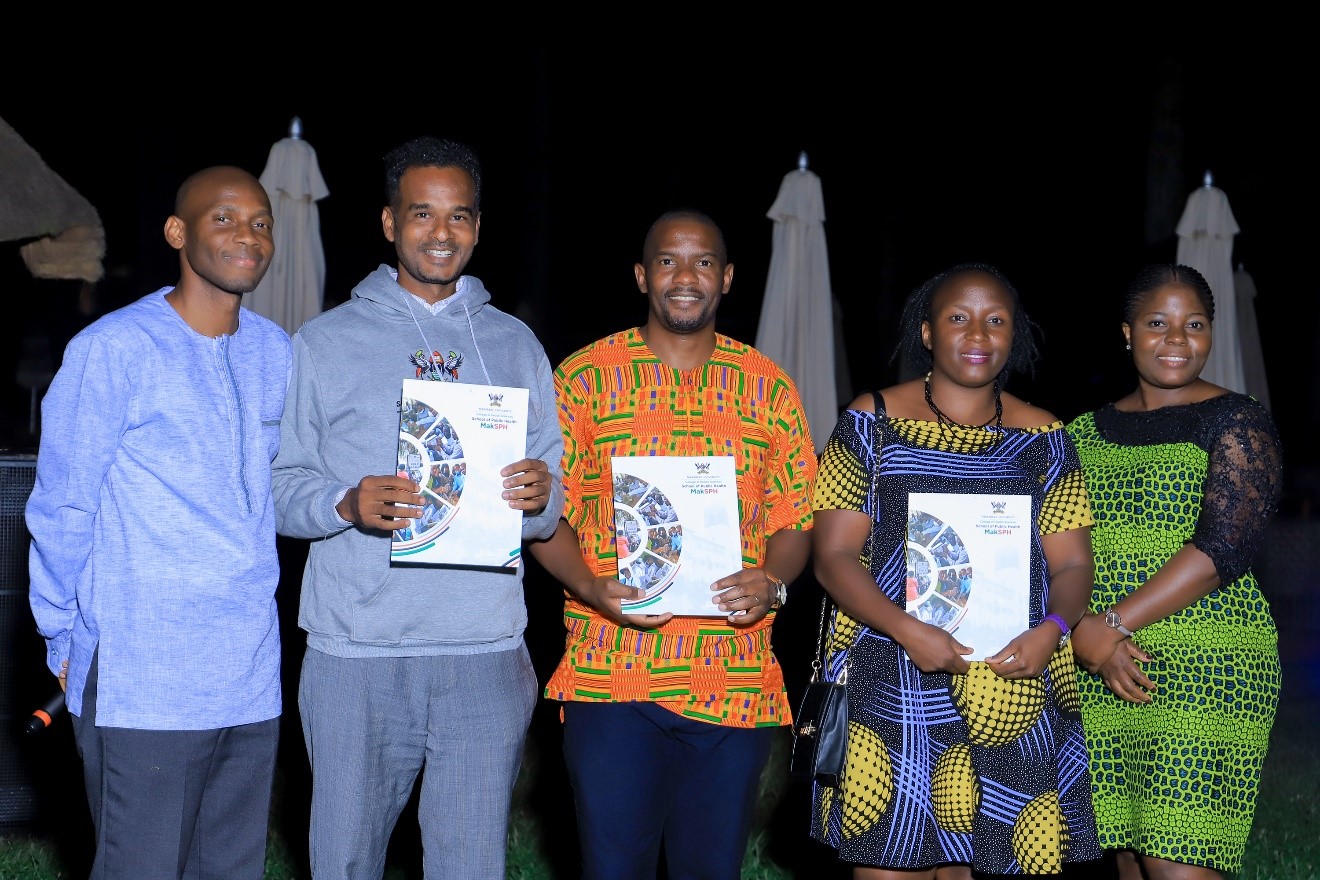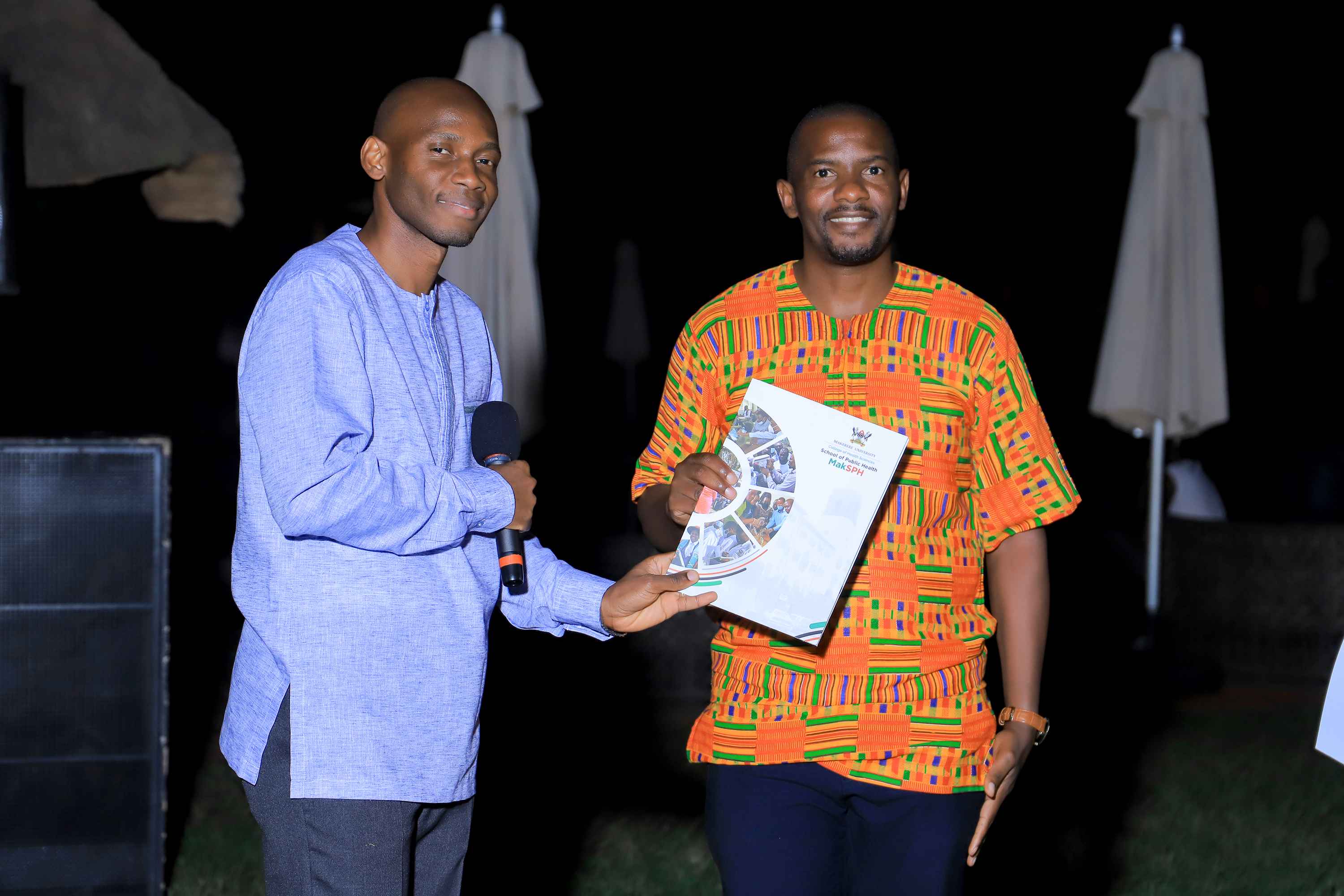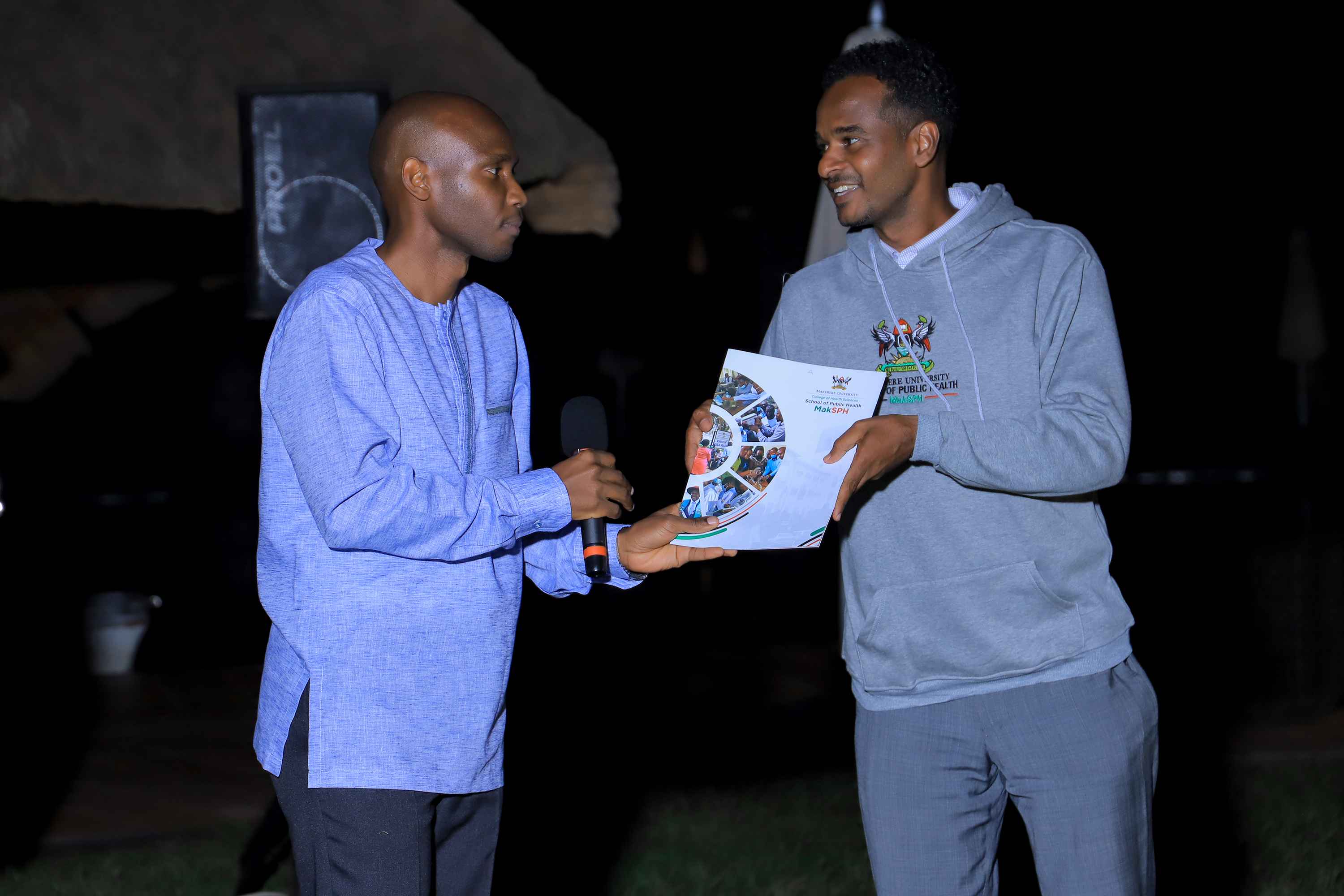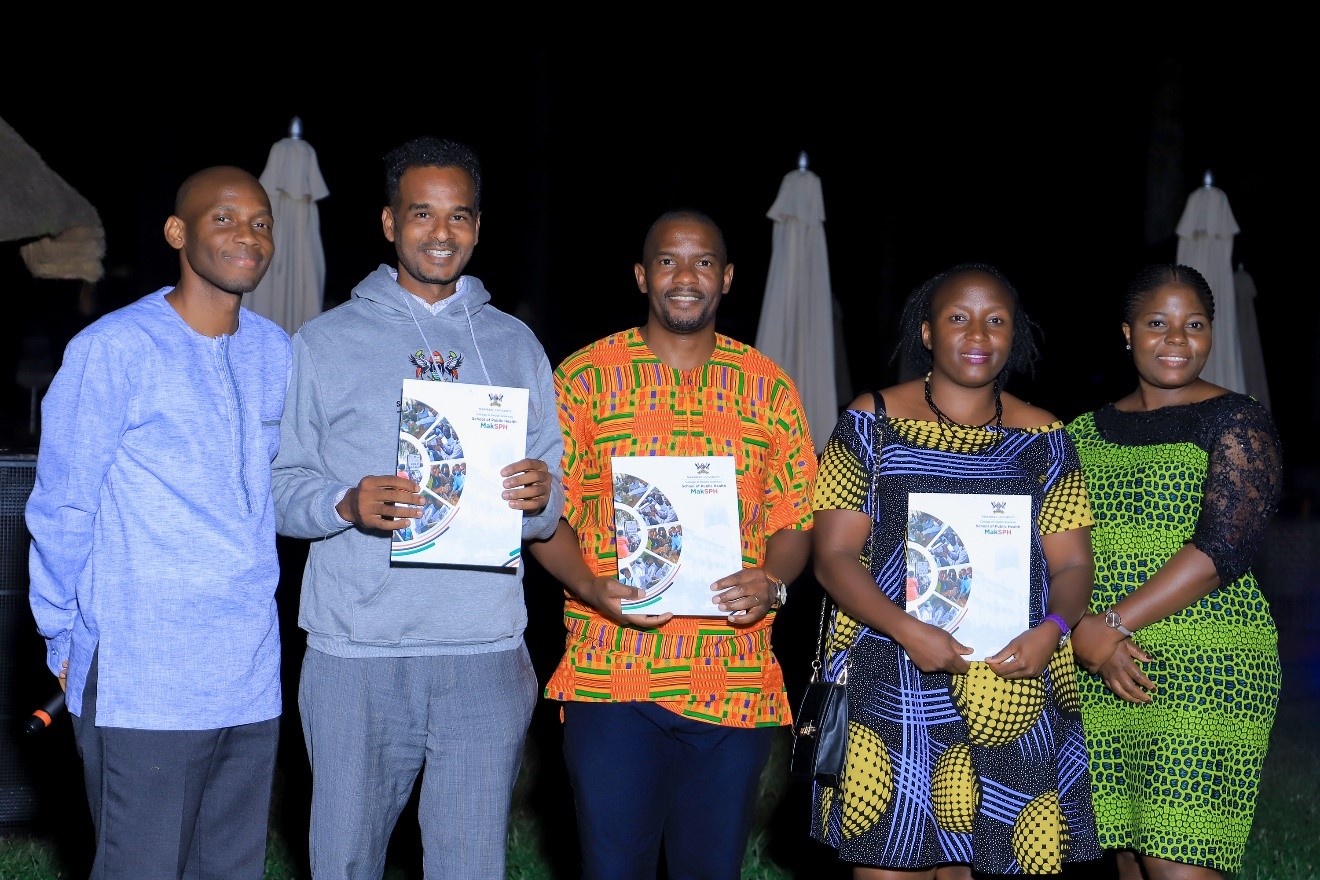
Three early career researchers (ECRs) at Makerere University School of Public Health (MakSPH) have been awarded seed grants as part of the School’s capacity strengthening initiative (4th round). The seed grants were announced at the MakSPH end of year party held on Friday 16th December 2022.
The scheme was launched in 2018 by the Grants and Research Capacity Building Committee with the support of the Dean’s office at MakSPH to enhance the School’s research capacity in important yet neglected areas of public health in Uganda and the region, as well as equip junior faculty, staff and students with skills to build independent research careers.
To be eligible for funding, an ECR must identify a senior researcher to work with as a promoter/mentor. The projects that have previously received funding in the first 3 rounds focus on several multi-disciplinary public health research subjects such as: urban health, non-communicable diseases, nutrition, Neglected Tropical Diseases, and disaster management. Applications are reviewed by the MakSPH Grants and Research Capacity Building Committee, with support from select faculty content experts.
The Chair of the MakSPH Grants and Research Capacity Building Committee, Dr. David Musoke congratulated the grant recipients upon their awards and encouraged them to conduct quality research so as to be a steppingstone for bigger grants in the future. Dr. Musoke also thanked the Dean of MakSPH Prof. Rhoda Wanyenze for her never-ending support to the work of the committee including the seed grants programme.
Round 4 Funding recipients:
Dr John Ssenkusu an Assistant Lecturer in the Department of Epidemiology and Biostatistics, awarded $10,000 to conduct a scoping review of the WHO Global Preparedness Monitoring Board (GPMB) framework indicators of health emergency preparedness and response: COVID-19 and Ebola response experiences.

Ms. Juliana Namutundu, an Assistant Lecturer in the Department of Epidemiology and Biostatistics, awarded $10,000 for a project that focuses on improving uptake of cervical cancer screening services among HIV positive women in care at rural public health facilities.

Mr. Abdullah Ali Halage, an Assistant Lecturer in the Department of Disease Control and Environmental Health, awarded $10,000 for a project that seeks to understand heavy metal concentration in milk from lactating cows grazed near municipal solid waste dumpsites and human health risk in Kampala metropolitan area, central Uganda.


Article by Stella Kakeeto

